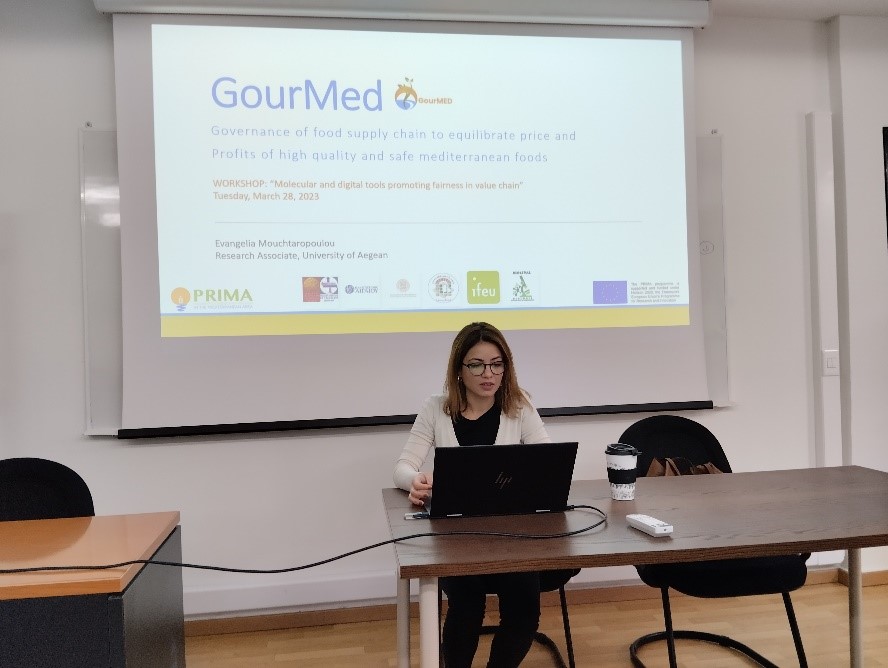International Workshop “Governance and Sustainability in Mediterranean Agri-Food Value Chains: Challenges and Perspective”
May 2024
The International Workshop titled: Governance and
Sustainability in Mediterranean Agri-Food Value Chains:
Challenges and Perspectives, was held on May 14th 2024 at the
University of Biskra in Algeria. The event took place in the
Audio-Visual Conference Room of the Central Bibliotheca and
brought together 73 participants from various sectors,
including academia, industry, government, and civil
associations.
This International Workshop of the GourMed Project
distinguished itself with a multidisciplinary approach,
encompassing a wide range of topics that contribute to a
comprehensive understanding of governance and sustainability
in Mediterranean AVCs. Experts and academics from fields such
as agronomy, economics, environmental sciences, and political
science converged to order diverse perspectives. The workshop
inaugurated at 9:00 AM (local time) with an opening ceremony
that included welcome addresses from university officials and
key organizers. This was followed by a series of expert
presentations divided into three main conference sessions.
Each session focused on very specific themes, with speakers
sharing their research findings and practical experiences.
This approach acknowledges the multifaceted and interdependent
nature of the challenges and opportunities within agri-food
value chains, highlighting the importance of collaborative
insights in generating holistic solutions. The workshop
presented a wide range of topics, each addressing a specific
aspect of governance and sustainability in the context of
Mediterranean agri-food value chains.
Some of the key themes include:
• Environmental Sustainability: Exploring strategies to reduce
the ecological footprint of AVCs, sustainable agricultural
practices and the impact of climate change.
• Economic Viability: Analyze the economic aspects of
AVCs, including market dynamics, trade policies and financial
viability of stakeholders.
• Social Equity: Discuss issues related to working conditions,
fair trade and social responsibility within AVCs.
• Policy and Governance: Examine the role of government
policies and regulations in shaping the sustainability and
governance of these AVCs.
• Technology and Innovation: Study the impact of
technological advancements, innovation and digitalization in
AVC optimization.
The afternoon session included poster presentations by
PhD students and young researchers, providing the ground for
future potential researchers to showcase their work and engage
with established experts in the field. The poster session
fostered dynamic interactions and offered valuable feedback to
the young researchers. The workshop concluded at 4:00 PM
(local time) with a closing ceremony that summarized the key
takeaways and outlined future directions for research and
collaboration. Participants left with a renewed commitment to
advancing the governance and sustainability of Mediterranean
agri-food value chains, inspired by the knowledge shared and
the connections made during the event. Through this gathering,
the workshop fostered successfully an environment of
intellectual exchange and practical discussion, paving the way
for future advancements in the governance and sustainability
of Mediterranean agrifood value chains.

